第43章 Raeburn's Homecoming (1)
He is a man both loving and severe, A tender heart, a will inflexible.Longfellow Luke Raeburn had been lecturing in one of the large manufacturing towns.It was the hottest part of a sultry day in June.He was returning home, and sat in a broiling third-class carriage reading a paper.Apparently what he read was the reverse of gratifying for there was a look of annoyance on his usually serene face; he was displeased with the report of his lecture given in the local papers, it was calculated to mislead very greatly.
Other matters, too, were harassing him just then and he was, moreover, paying the penalty of his two years' campaign, in which his almost superhuman exertions and the privations he had voluntarily endured had told severely upon his health.Possessed of a singularly well-regulated mind, and having in an unusual degree the inestimable gift of common sense, he nevertheless often failed to use it in his personal affairs.He had no idea of sparing himself, no idea of husbanding his strength; this was indeed great, but he treated himself as if it were inexhaustible.
The months of trouble had turned his hair quite white; he was now a more noticeable-looking man than ever.
Not unfrequently he made friends with the men with whom he traveled; he was always studying life from the workingman's point of view, and there was such a charm in his genial manner and ready sympathy that he invariably succeeded in drawing people out.But on this day he was not in the humor for it; instead, he thought over the abusive article and the mangled report in the "Longstaff Mercury," and debated within himself whether it were worth an action for libel.His love of fighting said yes, his common sense said no; and in the end common sense won the day, but left him doubly depressed.He moved to the shady side of the carriage and looked out of the window.He was a great lover of Nature, and Nature was looking her loveliest just then.The trees, in all the freshness of early June, lifted their foliage to the bluest of skies, the meadows were golden with buttercups, the cattle grazed peacefully, the hay fields waved unmown in the soft summer air, which, though sparing no breath for the hot and dusty traveler, was yet strong enough to sweep over the tall grasses in long, undulating waves that made them shimmer in the sunlight.
Raeburn's face grew serene once more; he had a very quick perception of the beautiful.Presently he retired again behind a newspaper, this time the "Daily Review," and again his brow grew stern, for there was bad news from the seat of war; he read the account of a great battle, read the numbers of his slain countrymen, and of those who had fallen on the enemy's side.It was an unrighteous war, and his heart burned within him at the thought of the inhuman havoc thus caused by a false ambition.
Again, as if he were fated that day to be confronted with the dark side of life, the papers gave a long account of a discovery made in some charity school, where young children had been hideously ill-treated.Raeburn, who was the most fatherly of men, could hardly restrain the expression of his righteous indignation.All this mismanagement, this reckless waste of life, this shameful cruelty, was going on in what was called "Free England." And here was he, a middle-aged man, and time was passing on with frightful rapidity, and though he had never lost an opportunity of lifting up his voice against oppression, how little had he actually accomplished!
"So many worlds, so much to do, So little done, such things to be!"That was the burden of the unuttered cry which filled his whole being.That was the point where his atheism often brought him to a noble despair.But far from prompting him to repeat the maxim "Let us eat and drink, for tomorrow we die!" it spurred him rather to a sort of fiery energy, never satisfied with what it had accomplished.Neither the dissatisfaction, however, nor even the despair ever made him feel the need of any power above man.On the contrary, the unaccountable mystery of pain and evil was his strongest argument against the existence of a God.Upon that rock he had foundered as a mere boy, and no argument had ever been able to reconvince him.Impatience of present ill had in this, as in many other cases, proved the bane of his life.
He would write and speak about these cases of injustice, he would hold them up to the obloquy they so richly deserved.
Scathing sentences already took shape in his brain, but deeper investigation would be necessary before he could write anything.
In the meantime to cool himself, to bring himself into a judicial frame of mind, he took a Hebrew book from his bag, and spent the rest of the journey in hard study.